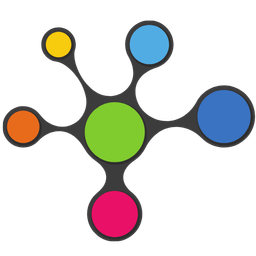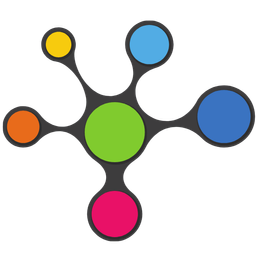Good Morning from San Francisco,
Tech executives lined up Thursday to shower Trump with billions in AI pledges. Microsoft promised $4 billion. Meta threw in $600 billion through 2028. The timing wasn't coincidental.
Trump sharpened his trade stick between handshakes, threatening semiconductor tariffs while exempting companies that invest domestically. Carrot meets stick. Investment becomes insurance.
Meanwhile, OpenAI announced it's building a jobs platform to compete with LinkedIn. The twist? Microsoft owns LinkedIn and invested $13 billion in OpenAI. Nothing awkward here.
Elon Musk skipped the party entirely after his May split with Trump. Sam Altman filled the void, praising Trump's "pro-innovation" leadership while pledging to certify 10 million Americans.
Corporate strategy now doubles as geopolitical theater. Every investment announcement carries a regulatory insurance policy.
Stay curious,
Marcus Schuler
Tech giants pledge billions in White House AI courtship
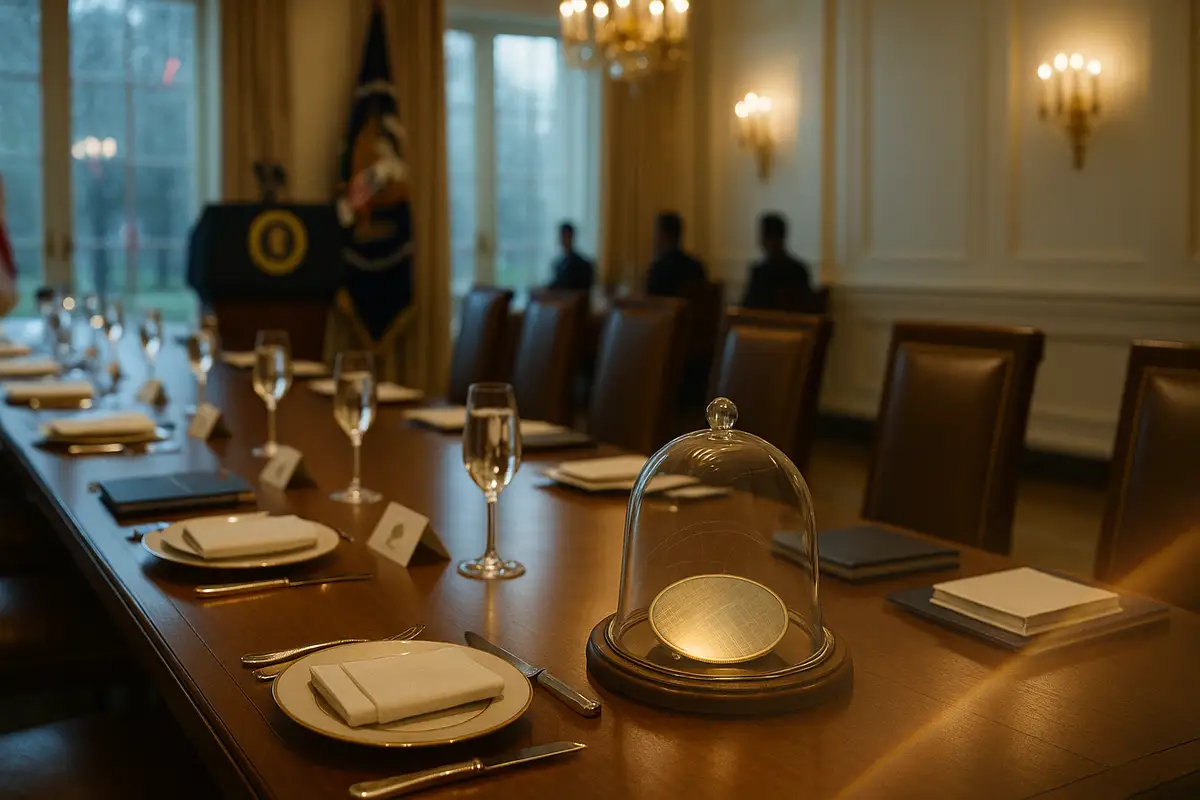
Tech executives lined up Thursday to pledge billions in AI education investments and heap praise on President Trump across dual White House events.
Microsoft committed $4 billion over five years while Meta announced $600 billion in domestic investments through 2028. The choreography wasn't subtle—each CEO stated their investment figures as Trump collected public commitments.
From Washington's perspective, the events showcased bipartisan education priorities while extracting concrete financial pledges. From Silicon Valley's view, the gatherings represented regulatory insurance against antitrust uncertainty. Both readings work.
Trump sharpened the stakes between toasts, threatening "fairly substantial" semiconductor tariffs while explicitly exempting companies that expand US production. The carrot-and-stick approach transforms trade policy into industrial leverage—investment announcements become insurance policies against future duties.
Elon Musk's conspicuous absence underscored shifting loyalties after his public split with Trump in May. OpenAI's Sam Altman filled the vacuum, praising Trump's "pro-innovation" leadership while his company pledged to certify 10 million Americans by 2030.
Why this matters:
• Public-private partnerships increasingly blur business strategy with geopolitical positioning as strategic competition intensifies
• Corporate investment pledges now function as regulatory insurance, giving tech giants political cover during antitrust proceedings
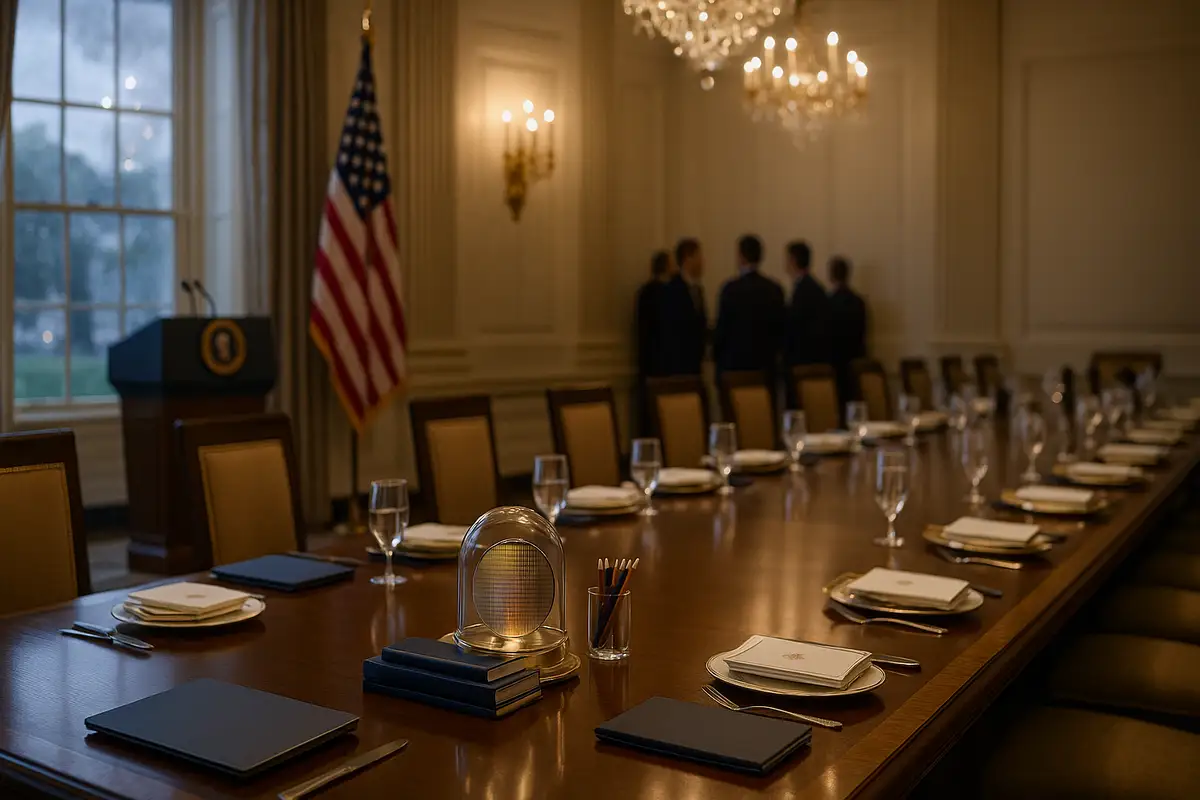
AI Image of the Day

Prompt:
Studio shot, with lot of motion blur, very slow shutter speed, artistic blur, dark red background. strong cinematic lighting highlighting a screengrab of the film Balenciaga commercial, black hair man with short hairstyle hugging a woman. Bal trustingy aesthetic, Bal_req trendy fashion style, BalFlooring in light red color, Bal Design studio in minimalistic design, Bal designed in minimalism style, Bal luxurious dark red room, Bal balromadie in 2035, Bal Balance aguSnake skin, Bal balanced light and shadow, Bal hyper realistic, clean composition, soft shadows, artistic mood. Shot with contax G2 on Kodak ektar 100
OpenAI builds job platform targeting Microsoft's LinkedIn
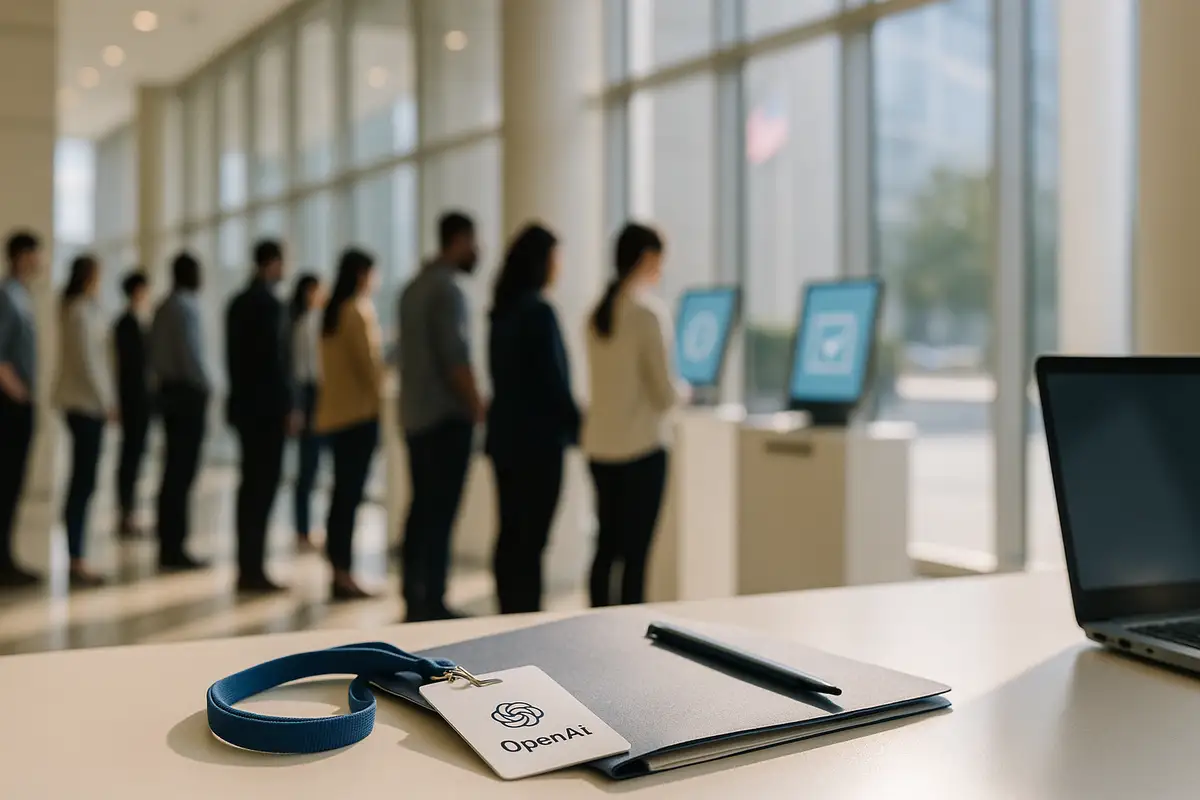
OpenAI announced Thursday it's launching an AI-powered jobs platform by mid-2026 that directly competes with LinkedIn—owned by Microsoft, its $13 billion investor.
The timing wasn't subtle: unveiled at a White House AI education meeting hosted by Melania Trump.
From Microsoft's view, the partnership remains valuable despite friction. OpenAI drives Azure adoption and validates AI infrastructure investments. From OpenAI's perspective, expanding beyond ChatGPT reduces dependence on any single partner while building platform economics.
The certification-to-employment pipeline targets 10 million Americans by 2030, starting with Walmart's 1.6 million employees. Government partnerships create distribution channels beyond traditional corporate hiring, with local agencies representing predictable revenue streams.
Stanford research shows 13% employment drops in AI-exposed entry roles since late 2022. OpenAI positions itself as solution provider rather than displacement driver.
Why this matters:
• Platform control becomes policy influence: Certification standards could shape AI workforce requirements across government sectors
• Corporate partnerships restructure competitive dynamics: Microsoft's investment limits direct counter-moves against OpenAI's LinkedIn challenge
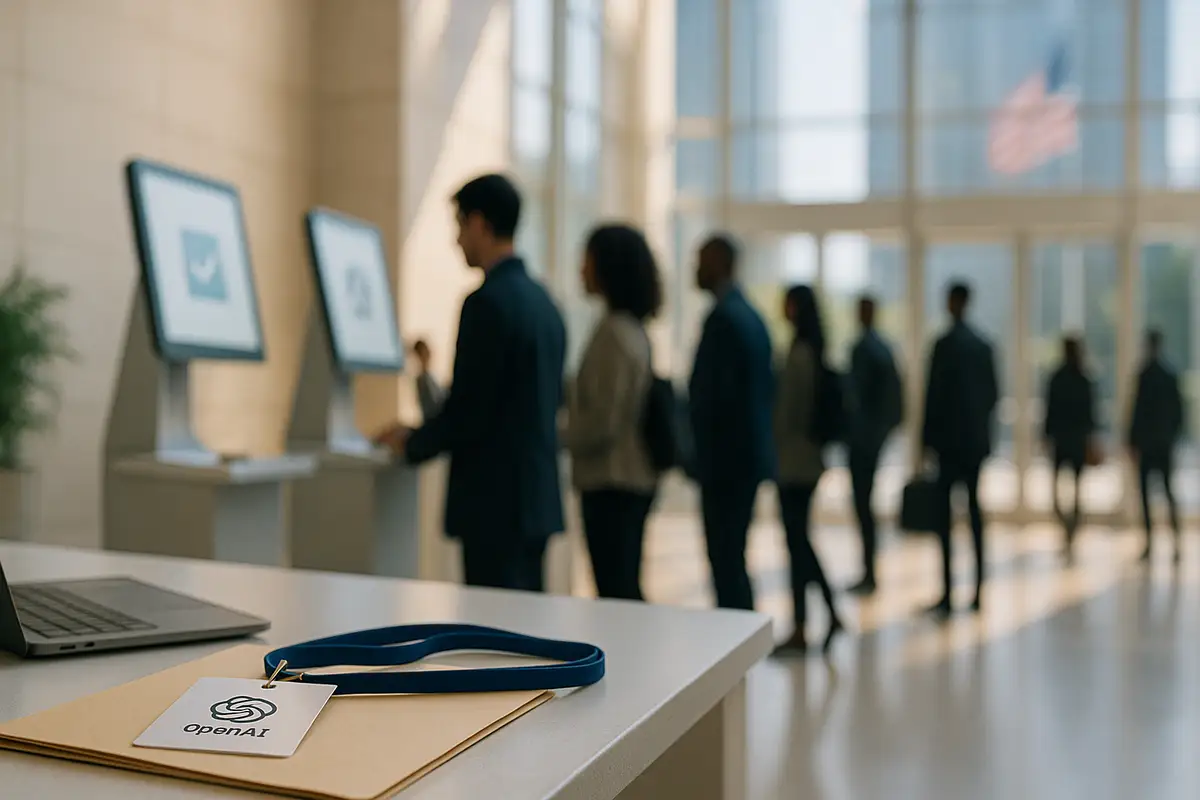
🧰 AI Toolbox
How to Create Artistic QR Codes That Actually Work
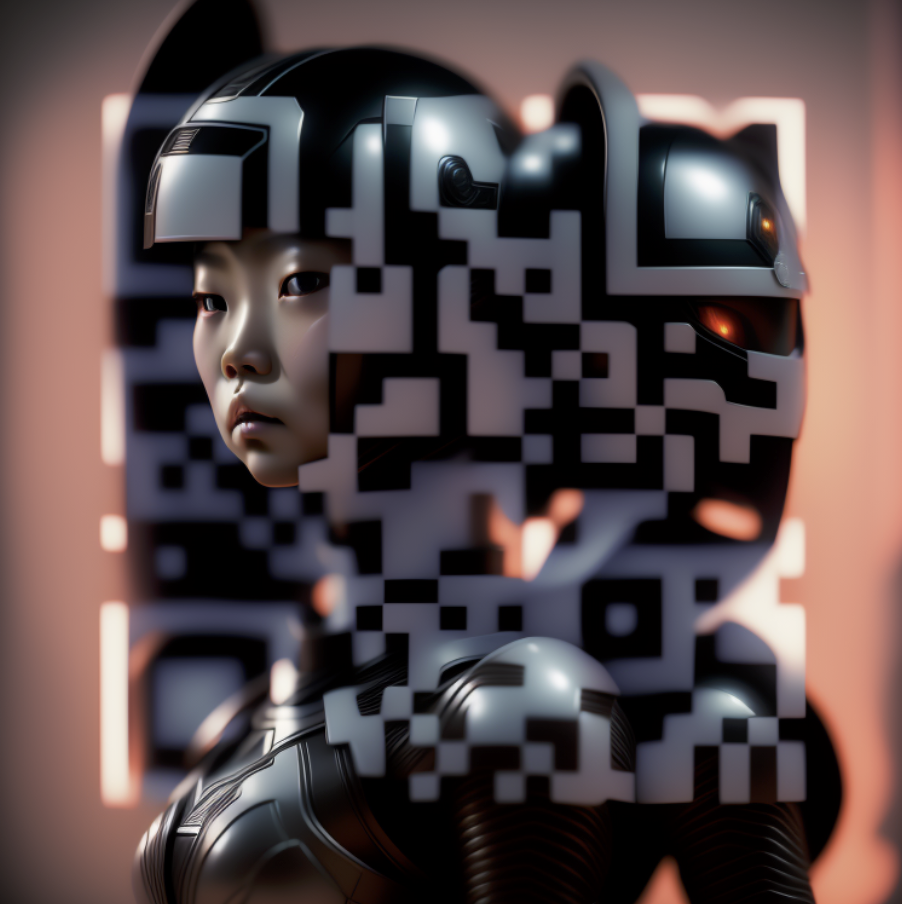
QR Code AI Art Generator transforms boring QR codes into beautiful, artistic designs while keeping them fully functional. Simply provide your content and a style prompt, and watch as AI blends your QR code naturally with stunning visual art.
Tutorial:
- Go to the QR Code AI Art Generator website
- Enter your text content or upload an image for the QR code
- Add a descriptive prompt to guide the artistic style you want
- Click generate and watch the AI create your artistic QR code
- Adjust the ControlNet weight if needed to balance art vs scannability
- Download your beautiful, fully-functional QR code
- Use these eye-catching codes for marketing, branding, or personal projects
URL: https://huggingface.co/spaces/huggingface-projects/QR-code-AI-art-generator
AI & Tech News
Apple unveils first major iPhone redesign in five years
Apple will introduce redesigned iPhone 17 models on September 9, marking the first significant design changes in half a decade with new camera layouts on Pro versions and an ultra-thin iPhone 17 Air. The launch kicks off a three-year design refresh cycle as Apple fights to keep its biggest revenue source—which accounts for roughly half of sales—relevant while lagging behind competitors in AI capabilities.
Anthropic blocks AI sales to Chinese-majority companies
Anthropic became the first major US AI company to ban sales to Chinese-majority owned groups, immediately blocking access for companies like ByteDance, Tencent and Alibaba over concerns about military and intelligence use. The move costs Anthropic hundreds of millions in revenue but sets a precedent as US AI firms face pressure to restrict China's access to advanced models amid escalating technological competition.
Warner Bros. Discovery sues Midjourney for copyright theft
Warner Bros. Discovery sued Midjourney Thursday in federal court, accusing the AI image generator of training on thousands of copyrighted movies and TV shows to create knockoff versions of Batman, Superman, and other iconic characters. The lawsuit joins Disney and Universal's earlier cases against Midjourney, forming a united studio front that could force AI companies to pay hundreds of millions in damages if courts reject fair use defenses.
Ex-Salesforce CEO's Sierra hits $10 billion valuation
Bret Taylor's customer service AI startup Sierra raised $350 million at a $10 billion valuation, more than doubling its worth since October. The round puts Sierra among fewer than six AI companies valued above $10 billion as investors chase the next public offering in a sector where funding has concentrated among a handful of potential winners.
Cerence sues Apple over Hey Siri and keyboard patents
Cerence filed a patent lawsuit against Apple in Texas federal court Thursday, claiming the iPhone maker stole virtual keyboard and voice command technologies after rejecting licensing talks in 2021. The case targets core iOS features including "Hey Siri" wake words and swipe-to-type keyboards, potentially forcing Apple to pay damages or redesign fundamental iPhone functions.
ByteDance quietly moves chip designers under Singapore unit
ByteDance chip design staff in Beijing and Shanghai discovered last week they now report to a Singapore unit after being moved into new groups on the company's internal messaging platform. The stealth reorganization positions the TikTok owner to access advanced semiconductor manufacturing blocked to mainland Chinese companies since late 2023.
AI system choreographs robot teams to work without collisions
Scientists at UCL and Google's DeepMind created RoboBallet, an AI system that choreographs robot teams using reinforcement learning and graphical data to avoid collisions while working together. The system planned 40 tasks with eight robot arms compared to existing techniques that handle 10 tasks with five robots, completing workflow plans in seconds rather than the days required by current methods.
Facebook revives pokes with dedicated buttons and streak-like counters
Facebook added dedicated poke buttons to user profiles and launched a tracking page at facebook.com/pokes that displays "poke counts" with friends, complete with fire emojis and achievement badges similar to Snapchat streaks. The move follows a March 2024 update that sparked a 13x increase in poking as Meta fights to retain younger users who continue abandoning the platform.
Nepal blocks Facebook, X, YouTube for dodging registration rules
Nepal blocked Facebook, X, YouTube and about two dozen other social media platforms Thursday after the companies refused government demands to register officially in the country. The move leaves TikTok, Viber and three other platforms as the only major social networks still operating in Nepal after they complied with registration requirements.
Synthesia's new AI avatars blur the line between real and artificial
Synthesia launched its Express-2 model that creates AI avatars with natural gestures, preserved accents, and facial expressions so realistic that viewers struggle to identify them as artificial. The company plans to make these avatars interactive within months, raising concerns that humans will form deeper emotional bonds with AI systems that look and sound increasingly human.
🚀 AI Profiles: The Companies Defining Tomorrow
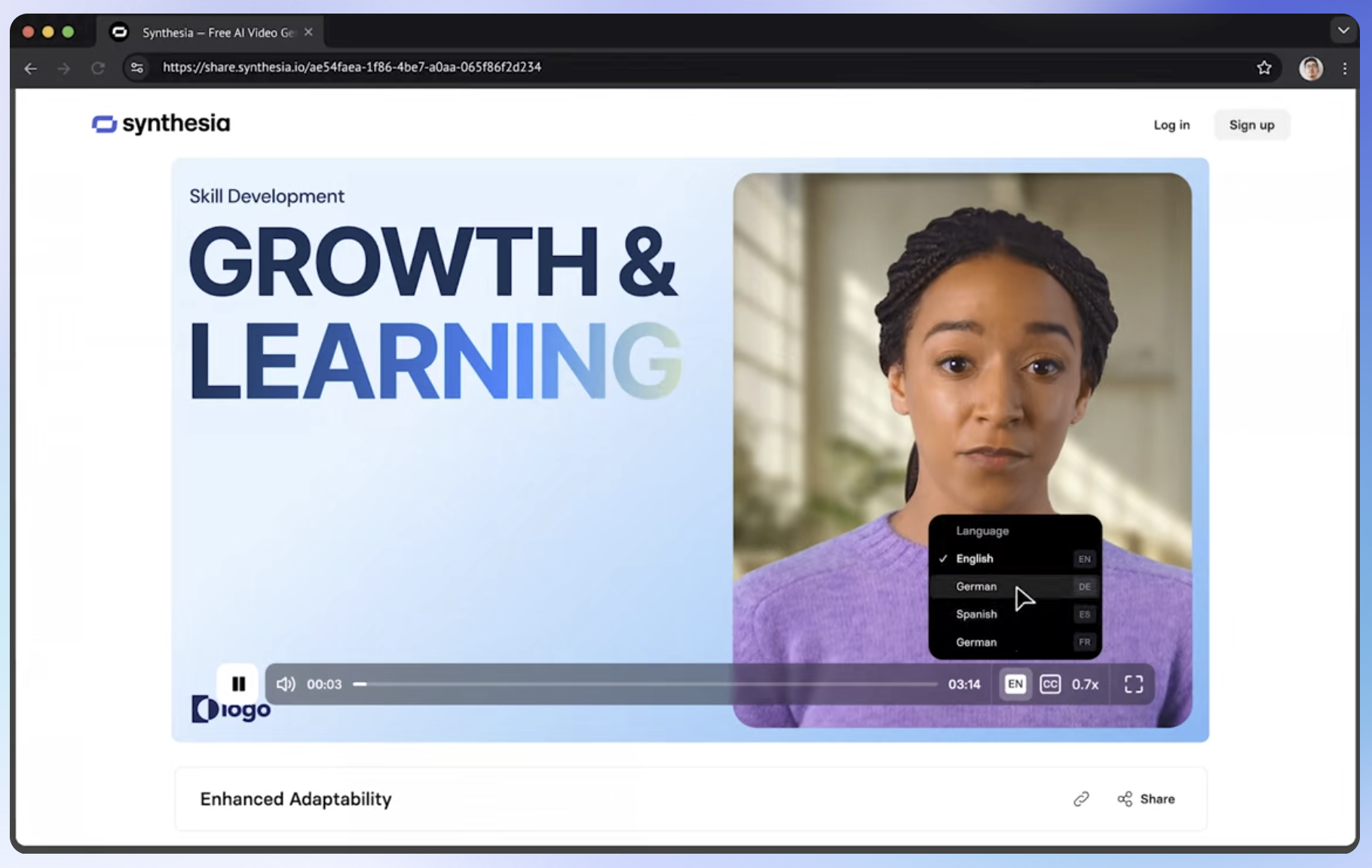
Synthesia 🎯
Synthesia turns text into presenter-led videos using AI avatars. The London company sells speed and scale to enterprises tired of expensive video reshoot cycles.
• The founders Founded 2017 by CEO Victor Riparbelli, COO Steffen Tjerrild, and computer vision professors Matthias Niessner and Lourdes Agapito. Started with 140+ employees now. Built from London to solve corporate training video costs.
• The product AI video platform. You type text, pick an avatar, get a presenter video in minutes. Supports 140+ languages. Stock avatars use paid actors with consent. Personal avatars need explicit approval. Enterprise customers get SOC 2 compliance, collaboration tools, and brand controls. EXPRESS-2 model delivers 1080p videos with lip-sync and natural gestures.
• The competition Fights D-ID, HeyGen, Colossyan, and Hour One for avatar market share. Microsoft's Azure AI Speech Avatars threatens from below as infrastructure play. Runway and Pika attack from adjacent video generation space. Synthesia differentiates on enterprise governance and consent frameworks. 📊
• Financing Series D raised $180M from NEA in January 2025 at $2.1B valuation. Total funding hits $330M+. Adobe Ventures added strategic investment. Company crossed $100M annual recurring revenue and claims 70% Fortune 100 penetration.
• The future ⭐⭐⭐⭐ Strong position but crowded field ahead. Interactive avatars and real-time conversation represent next battleground. Enterprise traction gives runway to invest in model improvements. Consent-first approach should age well as regulations tighten. Risk: commoditization as avatar tech spreads and margins compress. Success depends on proving ROI beyond novelty factor.




